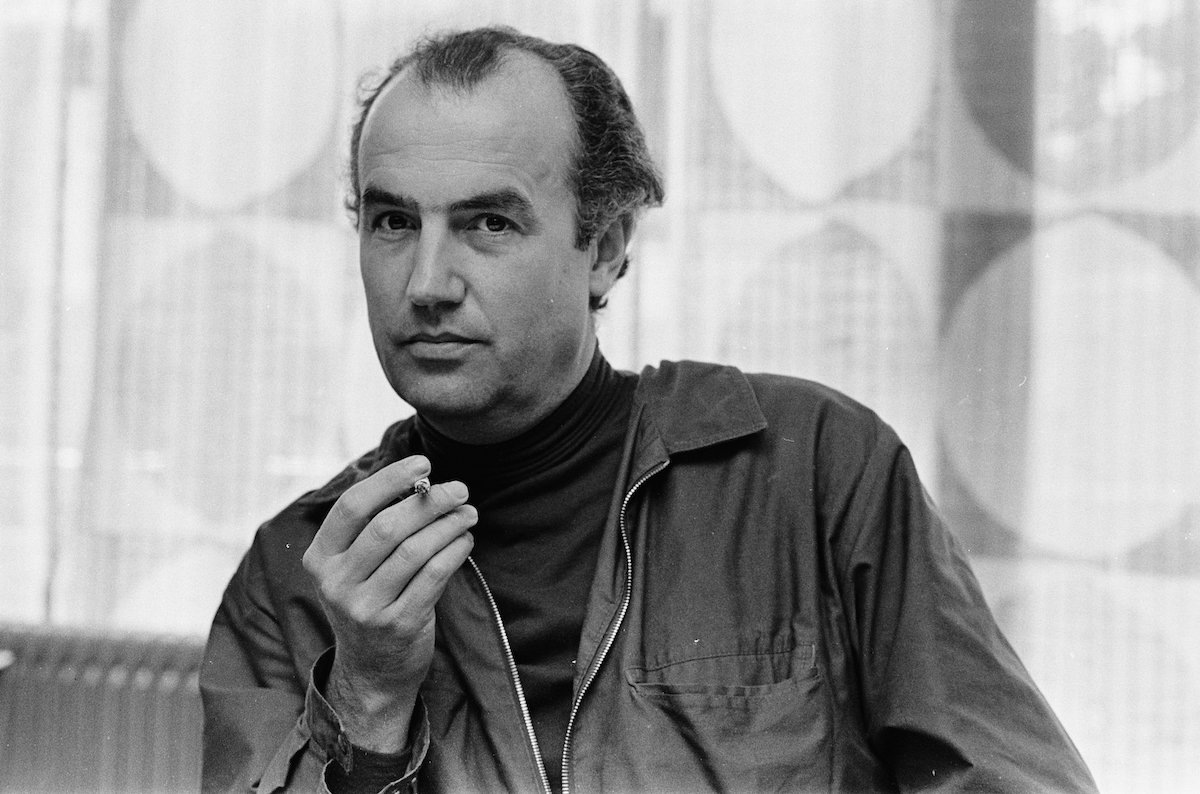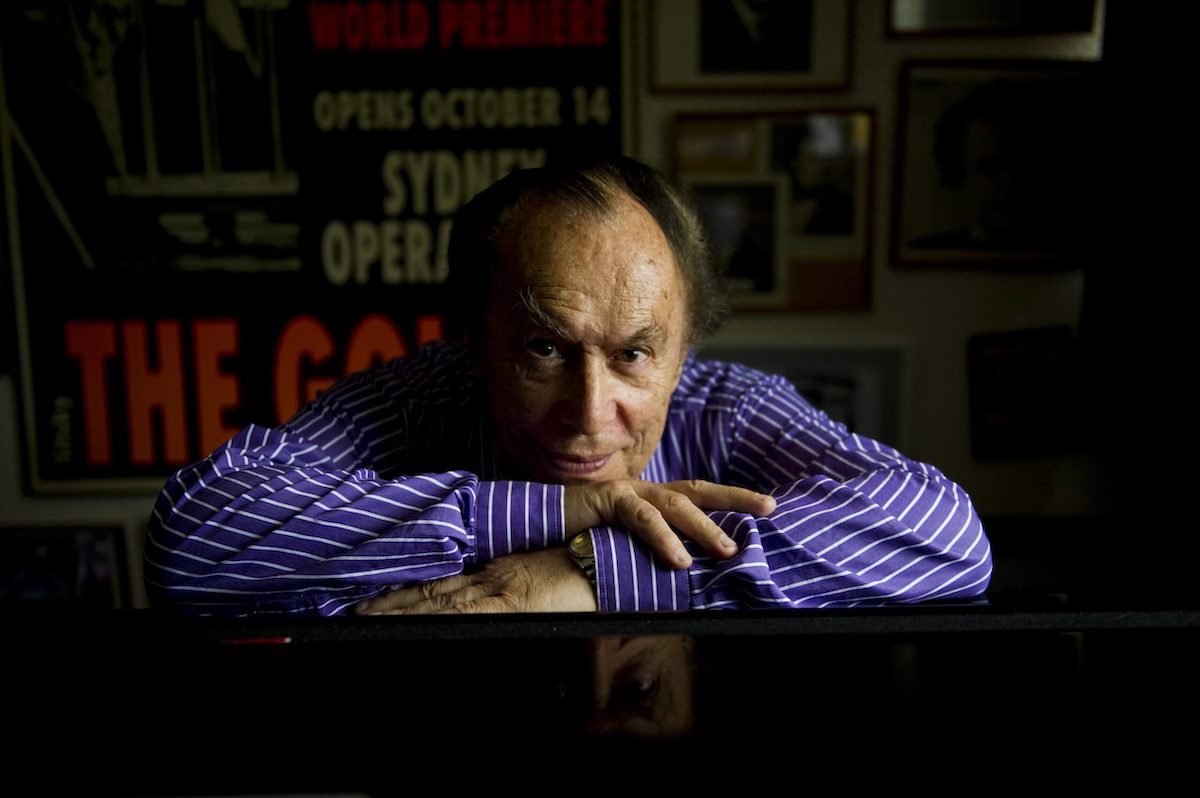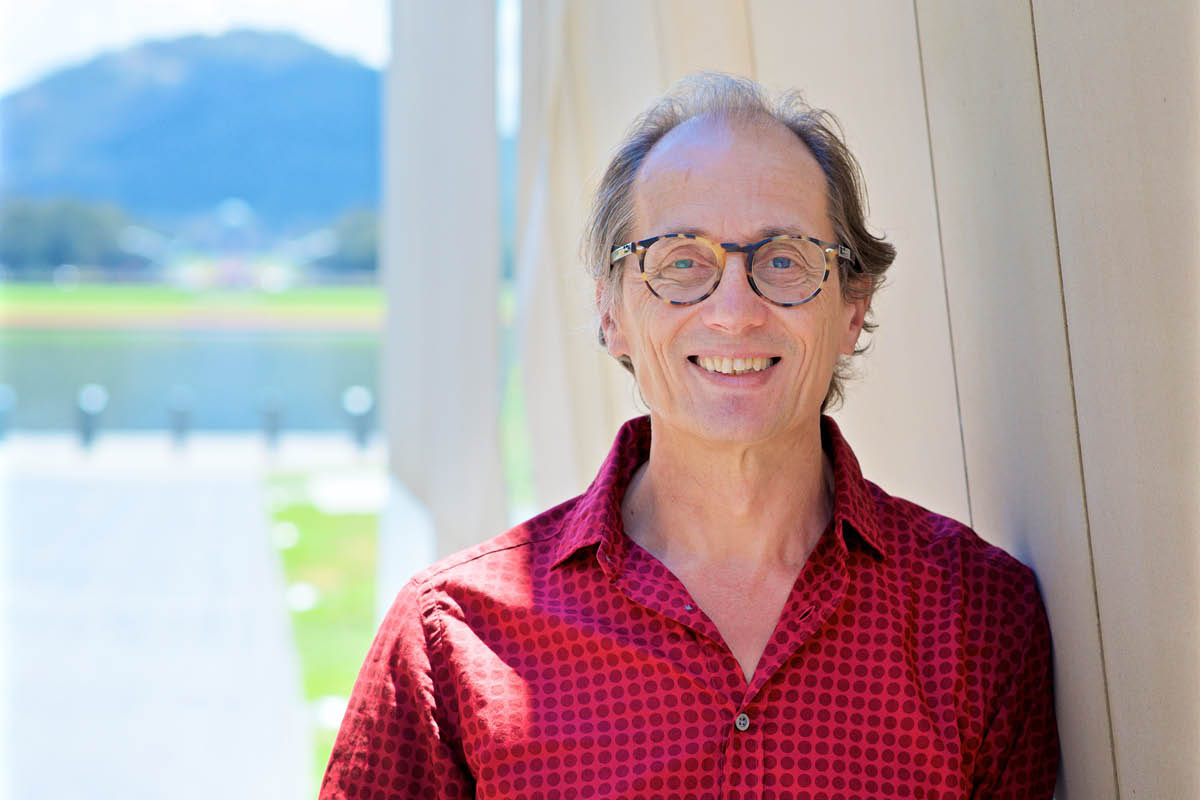One of the more intriguing concerts in this year’s Canberra International Music Festival brings together two unique musical minds – Italy’s Luigi Nono and Australia’s Larry Sitsky.
Nono, who died in 1990, was one of the leading post-modernist composers of the second half of the 20th century and a major figure in the evolution of electronic music.
Sitsky, who turns 90 this year, is one of Australia’s most prolific composers and an influential figure in music training and education.
Both created music addressing some of the great existential dilemmas of the times, each in their own idiosyncratic way. And each, as CIMF Artistic Director Roland Peelman notes, has a significant birthday this year: Nono would have been 100; Sitsky turns 90. “It has to be some kind of world-first,” says Peelman of his in-concert pairing of the two composers.
The concert, Larry and Luigi, performed on 3 May, brings together Nono’s La fabbrica illuminata – a work of ‘virtual sonic theatre’ in which Nono entwined the noise of factories and workers’ voices with pre-recorded and live soprano – and two key works of Sitsky’s: his 1984 Zuqerq for clarinet and bongos, and a more recent work, A Feast of Lanterns II, a 2015 song cycle based on seven Chinese poems.

Luigi Nono in 1970. Photo © Joost Evers/Wikimedia Commons
Larry and Luigi will be a rare opportunity to experience Nono’s work, which is seldom performed in Australia, Peelman says. “I first heard him when I was a student in Germany, back in the 1980s. He was regularly commissioned by organisations in Germany and Italy, the strongholds of modern European music. But he never really took off in America, unlike his compatriot and contemporary Luciano Berio. I suspect it was because he was a hardcore communist!”
Nono’s work is “uncompromising”, says Peelman; as sonically adventurous as it is political. “When I was a student in Cologne, which was the centre of electronic music in Europe in those days, I had the good luck to attend a performance of one of his later works – probably around 1983, I think. I witnessed firsthand the extreme sophistication of its musical language and its refinement of sonic material, the interaction between electronics and live performance. I think that is another reason why we’ve heard too little of Nono’s work in the past. The technical requirements for it in the pre-digital age were simply beyond what we could provide in Australia.”
Peelman was responsible for one of those rare Nono performances during the 1997 Sydney Festival, when he conducted The Song Company in a program featuring the composer’s Das atmende Klarsein, a meditative work for voices and bass flute.

Larry Sitsky. Photo © Jay Cronan (courtesy of CIMF/Canberra Times/ACM)
By contrast, Sitsky’s musical footprint in Australia is a large one. Born in 1934 in China to Russian-Jewish emigrées, Lazar “Larry” Sitsky arrived in Australia with his family as a teenager. He studied piano at the Sydney Conservatorium with Winifred Burston and then won a scholarship to the San Francisco Conservatory where he studied for two years with Egon Petri.
Sitsky was a founding member of the Canberra School of Music in 1965, which later became the Australian National University (ANU) School of Music. He held the positions of Head of Composition Studies, Head of Academic Studies, Head of Keyboard Studies and, finally, Emeritus Professor. He also co-founded the Composers’ Guild of Australia in 1975 and the Australian Music Ensemble.
Sitzky has composed hundreds of works including operas (such as The Golem, which Barrie Kosky directed for Opera Australia in 1993, and Lenz, based on Georg Buchner’s 19th-century novella), orchestral works, chamber music and pieces for solo instruments.
“Larry is very much associated with Canberra for all the work he has done here. But I also think that he also represents that grand European modernist tradition,” says Peelman. “In that is the idea that you can make a contribution through a creative body of work. It almost sounds like an old-fashioned ideal in this day and age, but nevertheless, it is a value proposition, it still has currency.”

Roland Peelman. Photo © William Hall
Though his work isn’t primarily regarded as ‘political’ – not in the way that Nono’s is – Sitsky’s influence has been profound at the personal level, Peelman says. “When you think about the number of musicians who have studied with him, learned from him and spoken to him, everyone speaks of him so warmly for what he’s given to them – his wide perspective, his skill base. And he can really tell a story. And at the age of 90, I can tell you, he’s as articulate as he ever was.”
Peelman’s musical association with Sitsky goes back 30 years. “I was conducting his Piano Concerto in Sydney with Roger Woodward, and you know, working with Roger isn’t always straightforward; the word that comes to mind is ‘idiosyncratic’. It was very interesting watching that process. Larry is the kind of composer who is very fluid, even sprawling sometimes. And so there was a bit of badgering and bartering going on about little cuts here and there and some tightening of ideas. But it was a fascinating process to be involved in that. I’ve probably never gotten really closer to his work than I was then.”
Peelman advises potential audiences to be alert to the sonic contrasts in the program. “I don’t want to make any great links myself, I think that’s something for the audience to do,” he says. “But I think the contrast in style is, in itself, very illuminating. Larry’s work is so gregarious and generous – overflowing. And Luigi’s so focused, so concentrated to an extreme degree. I think those two sides of modernism are really worth hearing next to one another.”
Larry and Luigi is performed on Friday 3 May, Albert Hall, Yarralumla, part of the 2024 Canberra International Music Festival.
On Saturday 4 May, Larry Sitzky joins Tamara-Anna Cislowska in Duet, an hour of music and conversation at the keyboard, again part of the 2024 Canberra International Music Festival.











Comments
Log in to join the conversation.